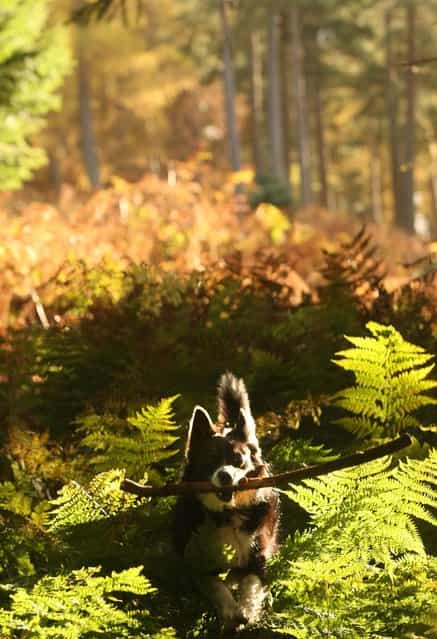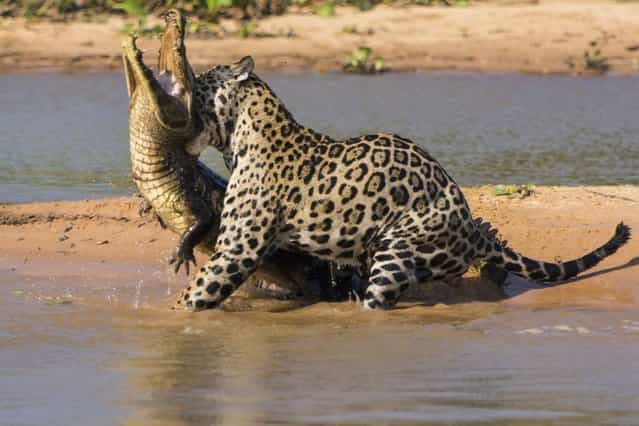Concern Grows Over Possible Mass Stranding Of Upto One Hundred Pilot Whales On A Scottish Beach
Advertisements:
[Pilot whales are cetaceans belonging to the genus Globicephala. There are two extant species, the long-finned pilot whale (G. melas) and the short-finned pilot whale (G. macrorhynchus). The two are not readily distinguished at sea and analysis of the skulls is the best way to tell the difference between the two species. Between the two species, pilot whales range in waters nearly worldwide with long-finned pilot whales living in cooler waters and short-finned pilot whales living in warmer waters. Pilot whales are among the largest of the oceanic dolphins, exceeded in size only by the killer whale. They and other large members of the dolphin family are also known as blackfish.
Pilot whales are primarily squid eaters but will feed on fish as well. They are also highly social and studies suggest that both males and females remain in their mothers’ pods, an unusual trait among mammals which would also be found in [resident] killer whale pods. Short-finned pilot whales are also one of the few mammal species where females go though menopause, a trait shared only by humans and killer whales, and post-reproductive females may contribute to the survival of younger members of their pods. Pilot whales are notorious for stranding themselves on beaches, and are among the most common cetacean stranders. Several theories have been proposed to account for this behavior]. – Wikipedia
Photos: Pilot whales swim in Loch Carron on May 20, 2011 in South Uist, Scotland. A major operation is underway to prevent up to 100 pilot whales from stranding on the rocky shoreline of Loch Carron on South Uist in the Western Isles. (Photo by Jeff J Mitchell/Getty Images)
Pilot whales are primarily squid eaters but will feed on fish as well. They are also highly social and studies suggest that both males and females remain in their mothers’ pods, an unusual trait among mammals which would also be found in [resident] killer whale pods. Short-finned pilot whales are also one of the few mammal species where females go though menopause, a trait shared only by humans and killer whales, and post-reproductive females may contribute to the survival of younger members of their pods. Pilot whales are notorious for stranding themselves on beaches, and are among the most common cetacean stranders. Several theories have been proposed to account for this behavior]. – Wikipedia
Photos: Pilot whales swim in Loch Carron on May 20, 2011 in South Uist, Scotland. A major operation is underway to prevent up to 100 pilot whales from stranding on the rocky shoreline of Loch Carron on South Uist in the Western Isles. (Photo by Jeff J Mitchell/Getty Images)
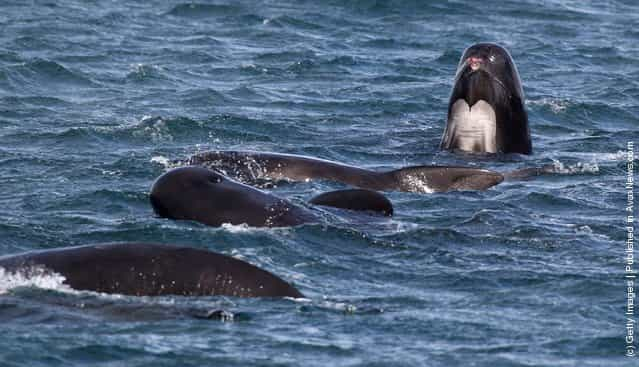
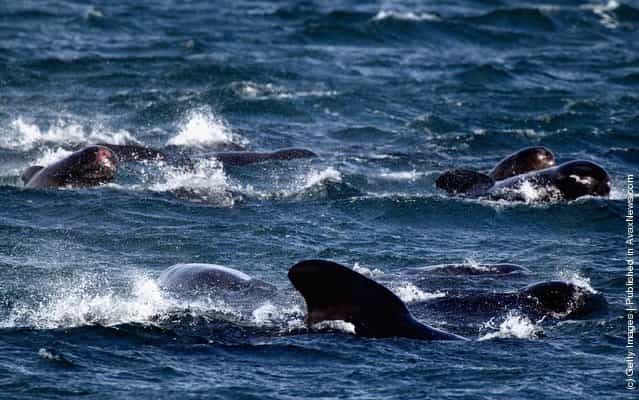
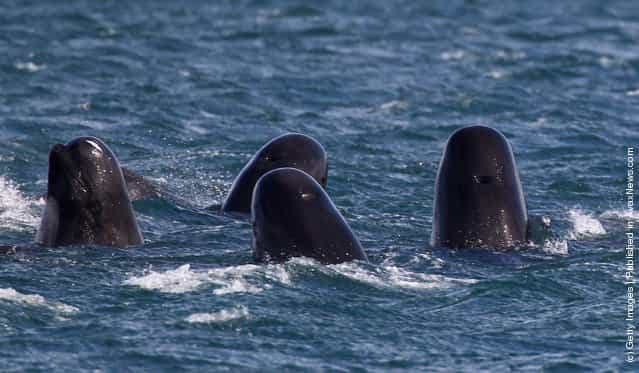
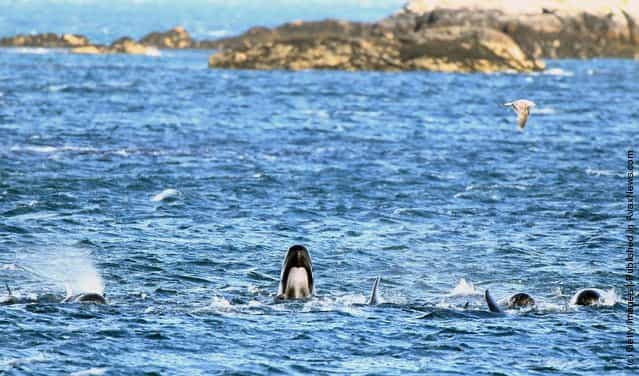
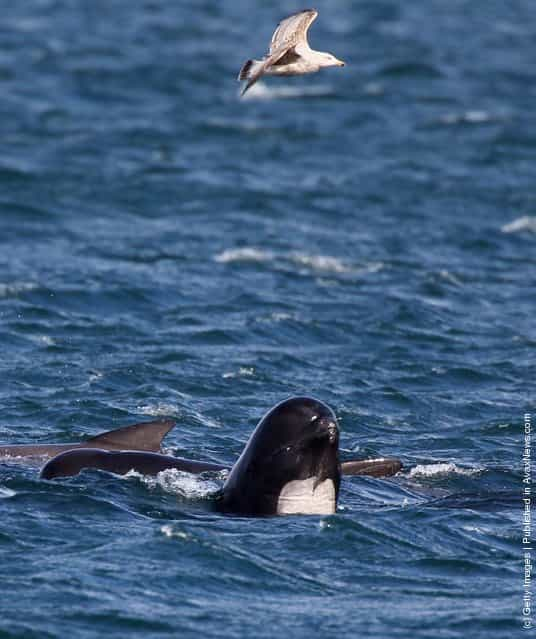
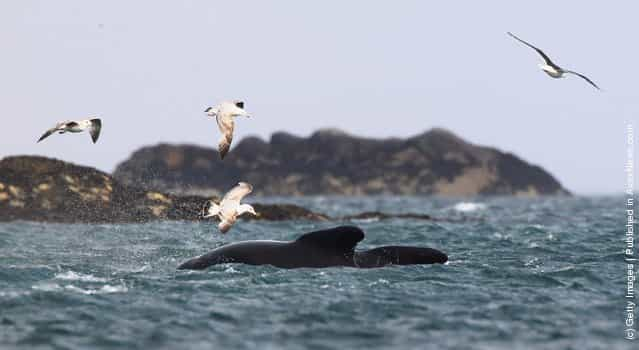
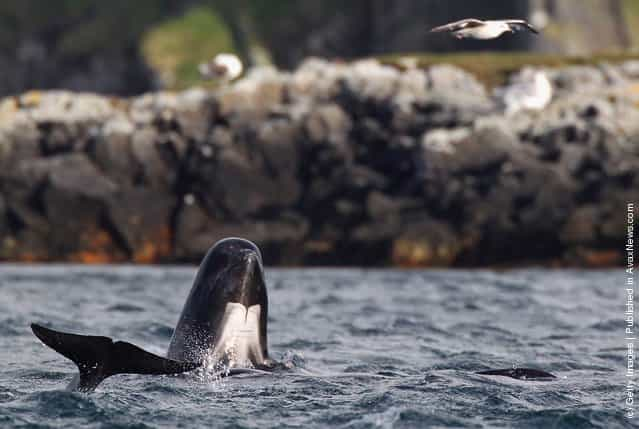
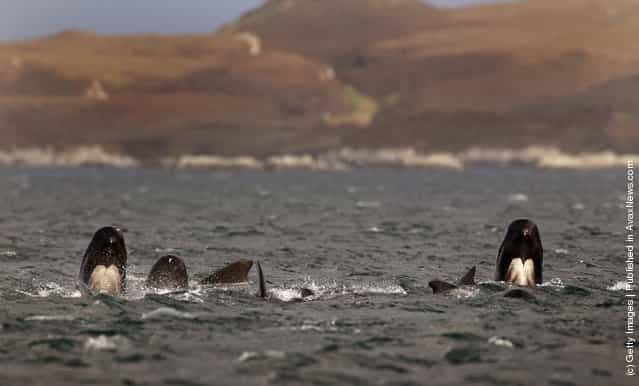
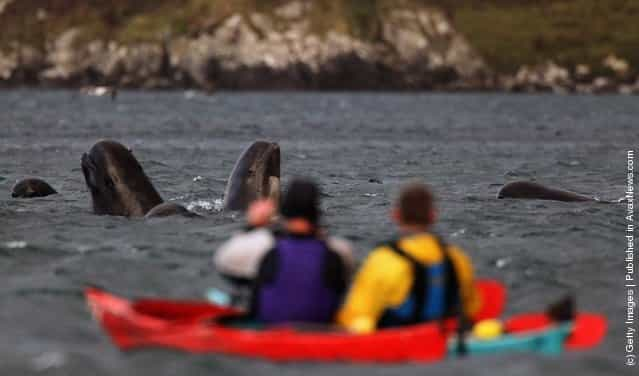
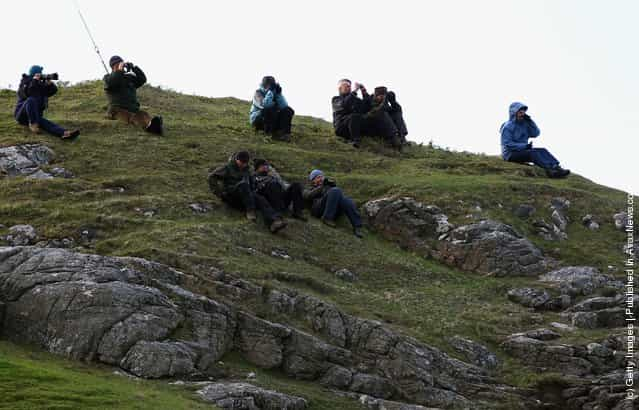
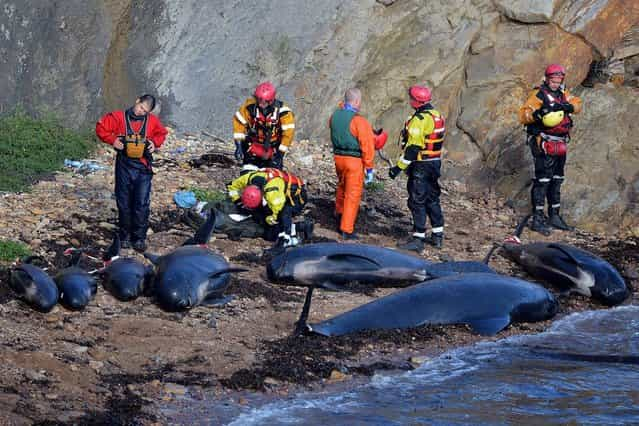
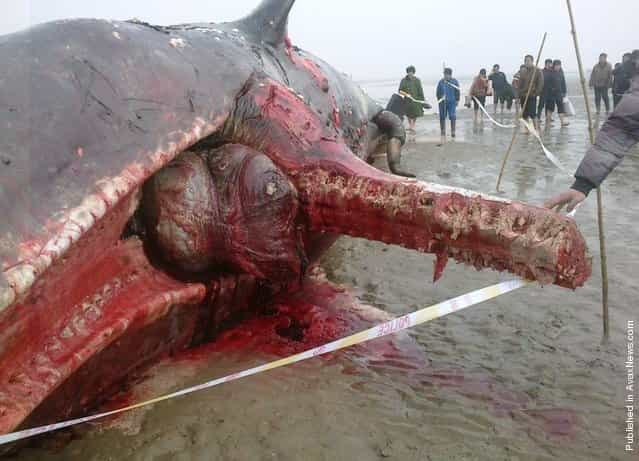
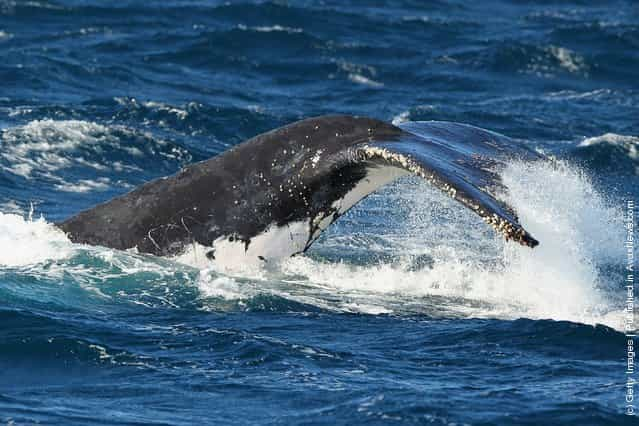
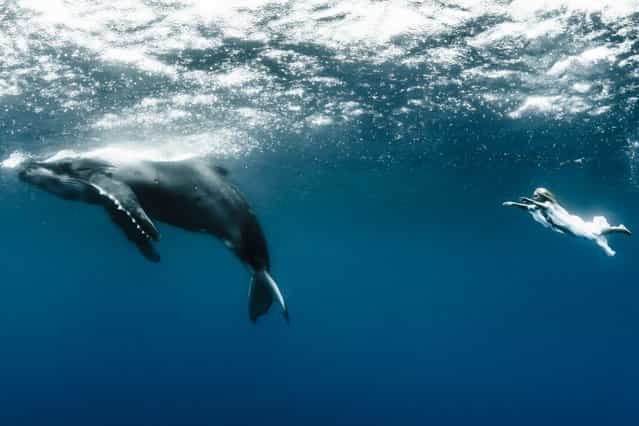
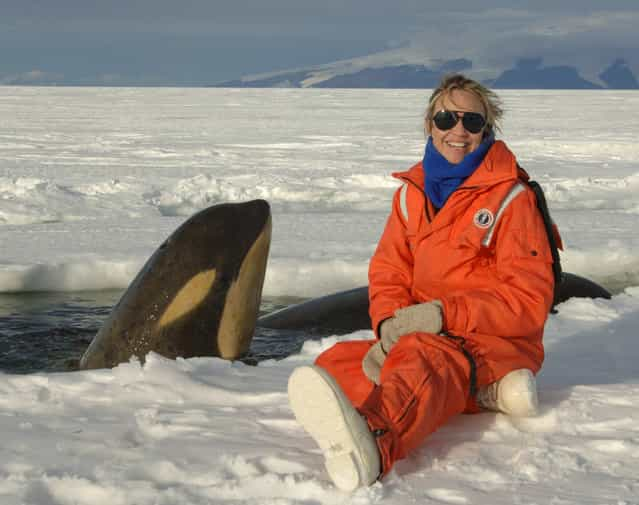

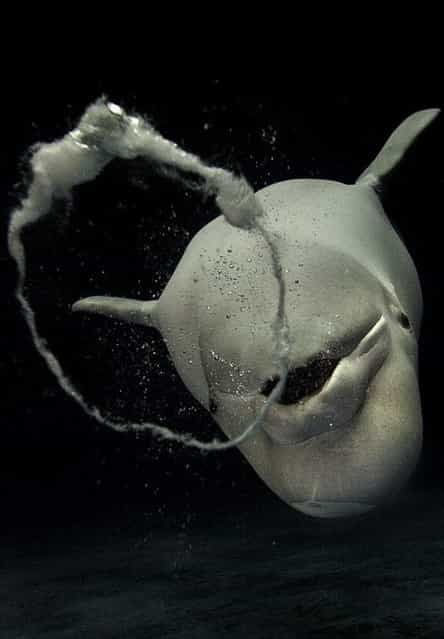
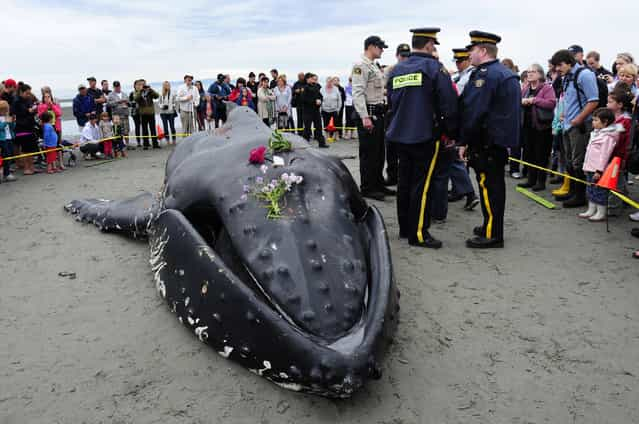

![Rare [Hybrid] Total Solar Eclipse Rare [Hybrid] Total Solar Eclipse](http://img.gagdaily.com/uploads/posts/fact/2013/short/00010c55_medium.jpg)

